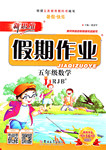题目内容
When we donate blood, a small amount is usually taken in advance for at least ABO and Ph systems typing. If you are O+, the O is your ABO type and the + is your Rh type. It is possible to be A, B, AB, or O as well as Rh + or Rh-.
The ABO system was discovered by Karl Landsteiner in the early 1900s. He was awarded the Nobel Prize for his achievements. There are four basic types of blood in the ABO system: A, B, AB and O. Everybody is born with one of these four types of blood. We get blood type, just like hair color and height from parents. Because of the substances(物质) contained in each type, the four groups must be transfused carefully, If two different blood types are mixed together, it may put a person into an extremely dangerous situation. Basically, A and B cannot be mixed. A and B cannot receive AB, but AB may receive A or B. In an emergency, type O blood can be given because it is most likely to be accepted by all blood types, so it is often called the universal donor. However, there is still a risk. For the opposite reason, AB is sometimes called the universal receiver. However, because there can be so many reactions in the blood bank of the hospital.
There is a relationship between your blood type and your nationality. Among the Europeans, about 45 percent have type O while 42 percent have type A. The rarest is type AB. Other races have different percentage. For example, some American Indian groups have nearly 100 percent type O out of 100
 donors in the world…
donors in the world… | 84 donors are Rh+ | 16 donors are Rh- |
| 38 are O+ | 7 are O- |
| 34 are A+ | 6 are A- |
| 9 are B+ | 2 are B- |
| 3 are AB+ | 1 is AB- |













 A B A B A B A B
A B A B A B A B

 AB O AB O AB O AB O
AB O AB O AB O AB OA B C D
2. The underlined word “transfuse” most probably means ________.
A. to put the blood into a container
B. to move the blood from one place to another
C. to put
 the blood of one person into the body of another
the blood of one person into the body of anotherD. to give power to another person
3. The writer suggests that the third most common blood type among the Europeans is ______.
A. B B. A C. AB D. O
4 The text mainly tells us ______.
A. about the basic types of human blood
B. what kind of blood is the most common
C. about Karl Landsteiner who won the Nobel Prize
D. the relationship between blood type and nationality
小题1:D
小题2:C
小题3:A
小题4:A
略

练习册系列答案
 新思维假期作业寒假吉林大学出版社系列答案
新思维假期作业寒假吉林大学出版社系列答案
相关题目
 med to be nothing we could do except taking a taxi to the Tower of London, and try to find her there.Needless to say, we didn’t find her.
med to be nothing we could do except taking a taxi to the Tower of London, and try to find her there.Needless to say, we didn’t find her. ic had to stop, and the only way to get there was by underground railway.Hand in hand we felt our way along the road to where we thought the nearest station should be.An hour later we were still trying to find it.Just as I was about to lose my temper completely when we met a blind man tapping his way confidently through the fog.With his help we found Tower Hill tube station just fifty yards down the road.
ic had to stop, and the only way to get there was by underground railway.Hand in hand we felt our way along the road to where we thought the nearest station should be.An hour later we were still trying to find it.Just as I was about to lose my temper completely when we met a blind man tapping his way confidently through the fog.With his help we found Tower Hill tube station just fifty yards down the road. he Crown Jewels, ha
he Crown Jewels, ha d managed to get another ticket for concert, and had had a wonderful dinner at a
d managed to get another ticket for concert, and had had a wonderful dinner at a  restaurant near the hotel where she decided to stay for the night.Now she was ringing to discover whether we had had an equally successful day.
restaurant near the hotel where she decided to stay for the night.Now she was ringing to discover whether we had had an equally successful day. that need to be 52 ? Are you discovering that you don’t have 53 it tak
that need to be 52 ? Are you discovering that you don’t have 53 it tak es to lift them? There is someone who is willing to give us the 54 we need. Maybe, it’s sometimes a good idea to ask others for 55 when we meet difficulties we can’t overcome.
es to lift them? There is someone who is willing to give us the 54 we need. Maybe, it’s sometimes a good idea to ask others for 55 when we meet difficulties we can’t overcome.